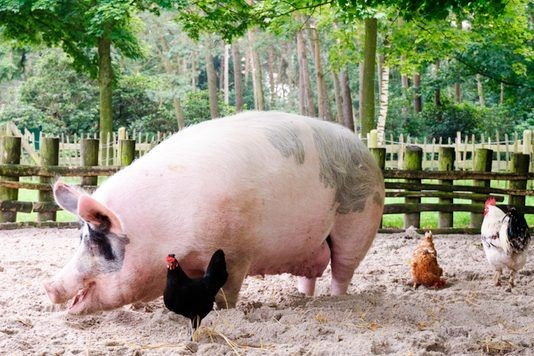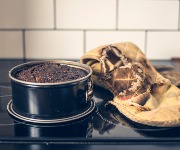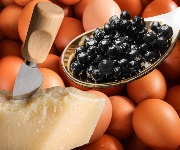New calls to curb antibiotic use on farms

A Commons Select Committee has called on ministers to stop the over-administration of antimicrobial drugs to farmed animals.
There have been calls this week for the Government to “set clear responsibilities at all levels of the NHS and veterinary medicine” to better manage the administering of antimicrobial drugs, the group that includes antibiotics, to farmed animals.
As we mentioned in our recent article on organic farming, the use of antibiotics as a routine rather than therapeutic measure has already been criticised by organisations such as the Soil Association. They say the practice means animals are less likely to develop resistance to diseases, and bacteria will become more resistant to treatment.
The Science and Technology Committee has voiced its concerns over “circumstantial evidence that antimicrobial resistance can be transmitted” between animal and human pathogens, as highlighted in this report. So could this ultimately lead to a change in the way our food is produced?
Antibiotics in farming
 Antibiotics are commonly used on non-organic farms where there is an increased risk of disease, rather than just to treat animals who are sick. Though the use of antibiotics to promote growth is now banned in the EU (though permitted in North America and elsewhere), the practice of non-therapeutic antibiotic administration – whereby the drugs are used not to treat an existing illness – is still problematic.
Antibiotics are commonly used on non-organic farms where there is an increased risk of disease, rather than just to treat animals who are sick. Though the use of antibiotics to promote growth is now banned in the EU (though permitted in North America and elsewhere), the practice of non-therapeutic antibiotic administration – whereby the drugs are used not to treat an existing illness – is still problematic.
A Compassion in World Farming report, last updated in 2011, suggests that because the doses used aren’t strong enough to kill off all the “target bacteria”, the resistant microbes survive. More worryingly, if these resistant bacteria are mixed with non-resistant bacteria “in an antibiotic-free environment”, they gradually die out. But if the antibiotics are used for long periods of time, the resistant bacteria actually “become as strong as the original strains”.
Andrew Miller MP, Chair of the Science and Technology Committee, stated that, although the link has “not been conclusively proven”, the Committee believes that the Government “should be taking precautionary action to ensure that antibiotics are only being used on sick animals.”
John Fitzgerald, the Secretary General of the Responsible Use of Medicines in Agriculture Alliance, told the Committee that there were concerns that an overuse of antibiotics in animals could “undermine efforts to prevent the spread of antimicrobial resistance.”
The Committee’s concerns
 The Committee is worried that the veterinary use of antibiotic drugs has massively increased since 1969, despite the publication that year of the Swann report, which called for certain antibiotics not to be used to promote growth. They are calling on the Government to ensure that the use of antibiotics in farm animals be restricted to therapeutic use only.
The Committee is worried that the veterinary use of antibiotic drugs has massively increased since 1969, despite the publication that year of the Swann report, which called for certain antibiotics not to be used to promote growth. They are calling on the Government to ensure that the use of antibiotics in farm animals be restricted to therapeutic use only.
The Committee’s findings might stand as a decent argument for organic farming. Dr Goodwin of the Society of Biology suggests that tightening infection controls, which were “virtually absent in animal husbandry”, could reduce the need for antibiotics.
However, other witnesses for the Committee spoke of the problems that preventing non-therapeutic antibiotic use would cause. A ban on adding antibiotics to feed and water, said Catherine McLaughlin of the National Farmers Union, would make farming pigs in the UK “pretty much impossible”. She noted that the UK's poultry industry voluntarily gave up the use of “critically important antibiotics at about this time last year", and consequently had to raise their hygiene standards to be superior to hospitals.
Should our Government act now to reduce the widespread use of antibiotics in farming? Let us know your thoughts in the Comments below.
You might also like:
Everything you should know about organic food
The benefits of farming together
How a new type of flour could save impoverished coffee farmers
Most Recent
Comments
Be the first to comment
Do you want to comment on this article? You need to be signed in for this feature








